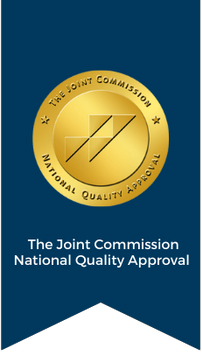Table of Contents
Addiction can be a challenging and isolating experience, not only for the individual struggling with it but also for their loved ones. If you have a loved one who is struggling with addiction, it can be difficult to know how to help. In this article, we’ll discuss some tips for supporting your loved one’s recovery and helping them overcome addiction.
Understanding Addiction
The first step in helping a loved one with addiction is to understand the nature of addiction itself. Addiction is a chronic disease that affects the brain and leads to compulsive drug or alcohol use despite negative consequences. It is important to approach addiction with empathy and without judgment.
Educating Yourself
Educating yourself about addiction is crucial in understanding the complexities of the disease and how it affects your loved one. This can include learning about the signs and symptoms of addiction, the different types of treatment available, and how to communicate effectively with your loved one about their addiction.
Encouraging Treatment
Encouraging your loved one to seek treatment is an important step in supporting their recovery. This can include helping them find a treatment program that suits their needs, attending appointments with them, and offering emotional support throughout the process.
Setting Boundaries
Setting healthy boundaries is important in supporting your loved one’s recovery while also taking care of yourself. This can include establishing clear expectations and consequences, avoiding enabling behaviors, and prioritizing your own self-care.
Communicating Effectively
Effective communication is key in supporting your loved one’s recovery. This includes active listening, expressing empathy, and avoiding judgment or criticism. It’s important to communicate your concerns in a non-confrontational way and to avoid blaming or shaming your loved one.
Encouraging Positive Habits
Encouraging your loved one to engage in positive habits such as exercise, healthy eating, and mindfulness practices can help support their recovery. These habits can also help improve overall physical and mental health, leading to a more positive and fulfilling life.
Seeking Support for Yourself
Supporting a loved one with addiction can be emotionally challenging, and it’s important to seek support for yourself as well. This can include attending support groups such as Al-Anon or Nar-Anon, speaking with a therapist, or simply reaching out to friends and family for support.
Understanding Relapse
Relapse is a common occurrence in addiction recovery, and it’s important to understand that it’s not a sign of failure. Encouraging your loved one to seek support and treatment after a relapse can help them stay on track towards long-term recovery.
Celebrating Milestones
Celebrating milestones and successes, no matter how small, can be a powerful way to support your loved one’s recovery. This can include acknowledging progress made in treatment, celebrating periods of sobriety, and expressing gratitude for the positive changes in their life.
In conclusion, supporting a loved one with addiction can be a challenging and rewarding experience. By educating yourself, encouraging treatment, setting healthy boundaries, communicating effectively, and seeking support for yourself, you can help support your loved one’s recovery and journey towards long-term sobriety.
At California Wellness Center, we understand the challenges of addiction and the importance of effective treatment and support. If you or a loved one is struggling with addiction, our team of medical professionals is here to help. Contact us today to learn more about our detox and inpatient treatment programs and how we can support you on the path to recovery.


